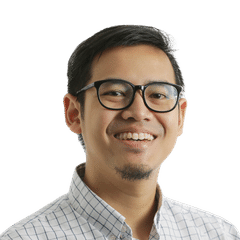Technology can help efforts to shift healthcare delivery towards the community: Ong Ye Kung
Sign up now: Get ST's newsletters delivered to your inbox

Health Minister Ong Ye Kung interacting with nurses at an event organised by the National University Health System to mark Nurses’ Day on July 24.
PHOTO: LIANHE ZAOBAO
Follow topic:
- AI and telemedicine will support Healthier SG and Age Well SG by shifting healthcare from hospitals to the community, says Health Minister Ong Ye Kung.
- NUHS is adopting technology like AI fall-risk assessment and "virtual nursing" to improve care and response times, especially for the ageing population.
- Singapore will expand healthcare infrastructure, develop manpower skills and broaden national health initiatives for preventive and community-based care.
AI generated
SINGAPORE – The use of technologies such as telemedicine and artificial intelligence (AI) can help bolster national initiatives such as Healthier SG and Age Well SG by shifting the delivery of healthcare away from hospitals towards the community, said Health Minister Ong Ye Kung on July 24.
Speaking at an event organised by the National University Health System (NUHS) to mark Nurses’ Day, he said there is a “strong, ground-up proliferation” of good potential uses of AI in healthcare
These will be implemented “thoughtfully and judiciously”, he added.
Technology will allow nurses to carry out their work more productively, said Mr Ong, who is also Coordinating Minister for Social Policies.
“It’s impossible for technology to replace the work of a nurse, but it can make your job better,” he added.
During the event, NUHS highlighted several examples of new technology it is adopting, such as the Endeavour AI Fall Risk Assessment tool, which uses AI to analyse a patient’s medical history, medication list and mobility status to predict the patient’s risk of falling.
It is expected to be introduced at the National University Hospital later in 2025.
Meanwhile, Alexandra Hospital is testing the use of “virtual nursing” in its smart wards.
Set to be implemented by end-2025, this system is aimed at enhancing response times to patient needs, while reducing the frequency of routine physical rounds by enabling nurses to remotely monitor and interact with multiple patients in real time through live video feeds.
NUHS group chief nurse Catherine Koh said care needs are evolving rapidly as Singapore’s population ages
“These changes to transform the roles and competency of nurses help ensure they are supported to practise effectively, with the right tools, education and autonomy to focus on what matters most – delivering quality care,” said Dr Koh.

Health Minister Ong Ye Kung looking at technology adopted by NUHS. Technology was one of four key thrusts he outlined for Singapore’s healthcare agenda in the coming years.
PHOTO: LIANHE ZAOBAO
Technology was one of four key thrusts outlined by Mr Ong for Singapore’s healthcare agenda in the coming years as the country handles an ageing population with increasing healthcare demands.
Healthcare manpower must be developed and reskilled amid the sector’s changing landscape, with the Government working with healthcare clusters and institutes of higher learning to develop skills pathways for nurses and other professionals.
The Republic will also “deepen and broaden” the implementation of national health strategies
He noted that the authorities are now in the second phase of implementing preventive health initiative Healthier SG, with it being imperative that those enrolled in the scheme go to their general practitioners for follow-ups and check-ins.
“It is important for them to build this health-seeking habit and see their family doctor even though they are not sick.
“We must build up strong community and environmental support that encourages our residents to lead healthier lifestyles,” he said, adding that they should try to quit smoking and take part in more active physical activities.
Meanwhile, as part of healthy-ageing initiative Age Well SG, Mr Ong said active ageing centres must expand their programmes and outreach, as well as strengthen their healthcare services via community health posts – touch points for easy access to health services near the homes of seniors.
Promising care models are also emerging, Mr Ong said, pointing to the example of the Happy Village @ Mei Ling community space under NUHS’ Health District @ Queenstown, which provides health screenings, vaccinations and exercise in the heart of the community.
Expanding healthcare infrastructure is also a key priority as healthcare demand rises, with Mr Ong citing as examples the new integrated general and community hospital in Tengah
NUHS will expand its manpower with the redevelopment of Alexandra Hospital as well as the new hospital in Tengah, noted NUHS chief executive Yeoh Khay Guan.
This additional manpower will provide the opportunity to accelerate transformation efforts in healthcare, he said at the event.
The event, held at the NUHS Tower Block in Kent Ridge Road, recognised the contributions of 160 nurses under the health cluster.


